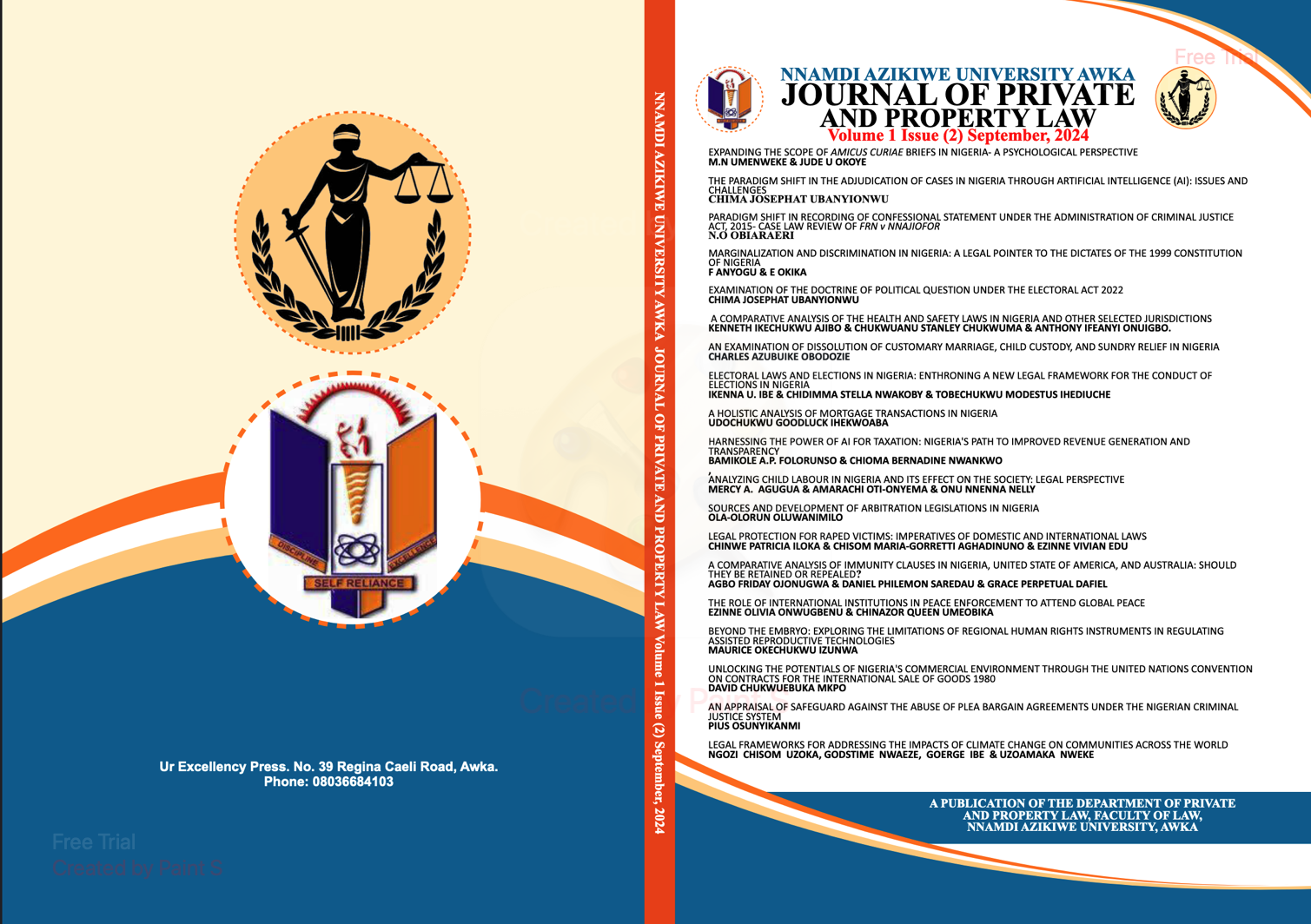HARNESSING THE POWER OF AI FOR TAXATION: NIGERIA'S PATH TO IMPROVED REVENUE GENERATION AND TRANSPARENCY
Keywords:
Artificial Intelligence, Taxation, Nigeria, Revenue Generation, Transparency, Data Analytics, Machine Learning, Natural Language ProcessingAbstract
The Nigerian taxation system has faced numerous challenges, including inefficiencies, non-compliance,
and revenue leakages. However, the advent of Artificial Intelligence (AI) presents an opportunity to
transform the taxation landscape. This article explores the potential of AI in enhancing revenue
generation and transparency in Nigeria's taxation system. We begin by examining the current state of
taxation in Nigeria, highlighting the challenges and limitations of the existing manual-based system. We
then delve into the concept of AI and its applications in taxation, including data analytics, machine
learning, and natural language processing. Next, we discuss the benefits of harnessing AI for taxation in
Nigeria, such as improved tax compliance, reduced tax evasion, and enhanced revenue collection. We
also explore the potential of AI-powered chatbots to facilitate taxpayer engagement and provide
personalized support. Furthermore, we discuss the implementation strategies for integrating AI into
Nigeria's taxation system, including data management, system integration, and change management. We
also address the challenges and limitations of AI adoption in taxation, such as data privacy concerns and
the need for infrastructure development. Finally, we present a roadmap for Nigeria's path to improved
revenue generation and transparency through AI-powered taxation. We conclude that harnessing the
power of AI can revolutionize Nigeria's taxation system, promoting economic growth, and development.

